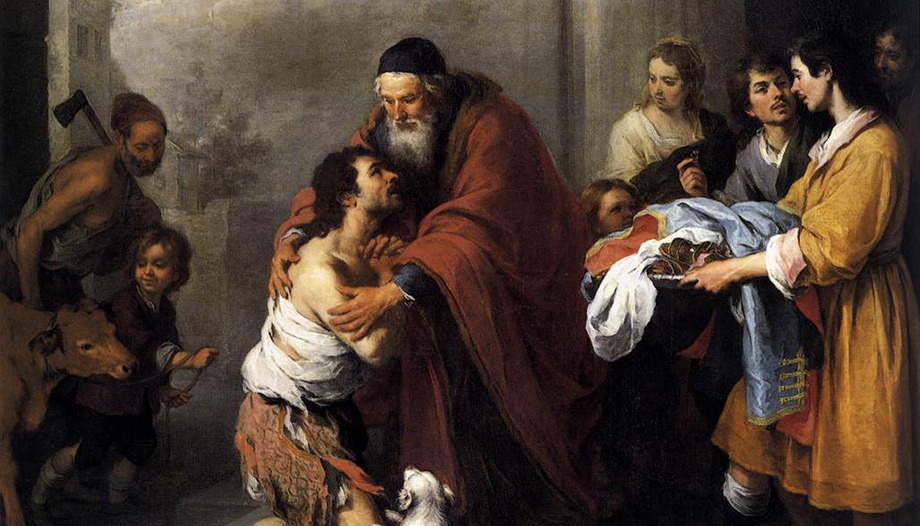"All the tax collectors and sinners used to come to Jesus to listen to him. And the Pharisees and the scribes murmured, saying, 'That one welcomes sinners and eats with them.'"
This introduction of Luke offers us a reading key for his masterpiece, the parable of the merciful father and his two sons: those farthest from God approach and listen to Jesus, while the scribes and Pharisees, who should be closer to God, "murmur", criticize him precisely because of his closeness to sinners.
The parable is a wonderful way of speaking, with a realistic and open story, so that everyone can be touched in the heart and become involved. For the former to realize that God can make them be reborn as children, and the latter that their way of thinking and acting is light years away from God's way.
The young man asks for his share of the inheritance from a father who, in reality, would like to give him everything he has, as he will tell his eldest son "everything of mine is yours". By moving away from this "everything", he loses his identity as a son, squandering the inheritance that reminded him of his origin and nature. With the care of the pigs, he loses even more dignity, in contact with animals considered impure, in the land of pagans.
The penance for his sin is the suffering of being far away, the conviction of having lost the relationship with his father, the acceptance of becoming a servant, the effort to get up, to resurrect, to take the road back to his father's house, the anxiety about how it will end.
The father runs to meet him, hugs him, kisses him and doesn't let him say "treat me as one of your hired hands".. Instead, she showers him with every possible sign of her sonship, not servanthood: the most beautiful dress, the family ring on his finger, the shoes on his feet, and the fatted calf to celebrate his return with joy.
The eldest son, physically close, however, has his heart turned away from his father and is not happy, thinks of his brother as "this son of yours"He disdainfully details his sins to his father, who, on the other hand, had never mentioned them.
And his father, nevertheless, has come out to meet him as he did his younger brother, and invites him to convert his heart according to his paternal heart, to stop working at home as a day laborer, to consider all his father's goods as his inheritance, even that son that he is, in reality, "this brother of yours".
The parable ends open, so that each one of those who heard Jesus, and each one of us who listened to this Gospel, may allow ourselves to be challenged by the Father's words and let the Father's love change our lives, whether we are in the role of the younger son or in the place of the elder. Or in the place of both.
The Homily in one minute
The priest Luis Herrera Campo offers its nanomiliaa small one-minute reflection for these readings.









